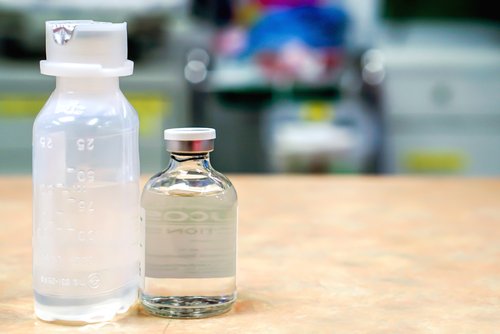Results from a Phase 3 trial have shown that Truxima (CT-P10), developed by Celltrion Healthcare, has a similar efficacy and safety profile as Genetech’s Rituxan (rituximab) for the treatment of advanced-stage follicular lymphoma.
Truxima is a Rituxan biosimilar, meaning it is almost an identical copy of Rituxan, but manufactured by a different company and usually sold at lower prices.
The findings were recently presented in a poster, titled “A Double-Blind, Randomized Phase 3 Study to Compare Efficacy and Safety of CT-P10 to Rituximab in Combination with CVP in Patients with Advanced-Stage Follicular Lymphoma,” during the 14th International Conference on Malignant Lymphoma (ICML), in Lugano, Switzerland.
“The data presented add to the increasing wealth of evidence for biosimilar rituximab and demonstrate that CT-P10 was non-inferior in terms of efficacy and comparable in pharmacokinetics and safety to the reference rituximab for patients with advanced stage follicular lymphoma,” Bertrand Coiffier, MD, professor and head of the Department of Hematology at Hospices Civils de Lyon, France, said in a press release.
“Switching to biosimilar rituximab presents opportunities for healthcare systems across the world to reduce the costs associated with oncology treatments, paving the way for greater patient access for new innovative medicines,” Coiffier added.
Truxima was specifically designed to target the same protein as Rituxan, the CD20 cell surface protein, while maintaining a similar body distribution and overall response. This new candidate drug was approved early this year by the European Union to be used to treat the same medical conditions as Rituxan, including follicular lymphoma, diffuse large B-cell lymphoma, chronic lymphocytic leukemia, rheumatoid arthritis (RA), granulomatosis with polyangiitis and microscopic polyangiitis, based on their biological similarities.
Truxima is being investigated in a Phase 3 trial (NCT02162771) to further demonstrate the non-inferior (NI) efficacy of Truxima compared to Rituxan.
The study included a total of 140 patients with advanced follicular lymphoma (stage 3 or 4), who received either Truxima or Rituxan in combination with standard chemotherapy — cyclophosphamide, vincristine, and prednisone (CVP) — once every three weeks, for up to 8 cycles
The overall response rate, deemed as the proportion of patients who achieved either a complete or partial response to treatment, was similar in the Truxima (97.0 percent) and Rituxan (92.6 percent) groups. Complete response rate was also similar between the two groups, demonstrating the noninferior efficacy of Truxima compared to standard Rituxan. A finding that an experimental treatment is noninferior in efficacy means that it was not worse than an active control by more than a specified margin.
“At a median follow-up of 17 months, 10 patients in the [Truxima] group and 13 patients in the [Rituxan] group experienced disease progression or death,” the authors reported.
No significant differences were observed regarding safety and tolerability. A total of 52.9 percent of patients in the Truxima group reported occurrence of treatment-emergent adverse events, compared to 48.6 percent in the Rituxan group.


